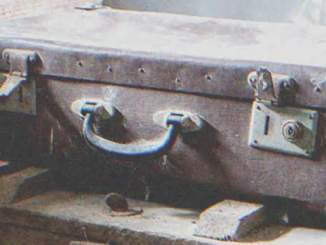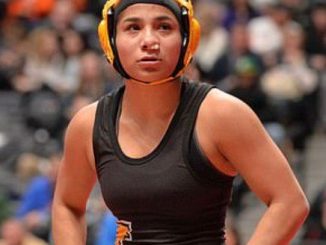Homelessness is a problem that many cities face around the world. Even though governments and organizations are trying to fix it, it’s still a big issue. One Canadian millionaire decided to make a difference in his own town with his money. Here’s his story.
In Fredericton, New Brunswick, Marcel LeBrun, a millionaire entrepreneur, took action to help homeless people in his community. Marcel, who made a lot of money from his successful social media monitoring company, decided to invest $4 million of his own money to build 99 tiny homes for those in need. He didn’t just stop at providing homes; he also created job opportunities with his unique approach. This project is called 12 Neighbours.
After selling his company and gaining a lot of wealth, Marcel wanted to use his money for good. Seeing the homelessness issue in Fredericton, he came up with the idea of a tiny home community to give homeless people a new start. He named his project 12 Neighbours and aimed to build a gated community with 99 homes and an enterprise center. This community offers both housing and job opportunities, giving homeless people a chance to rebuild their lives.

Homelessness is a big issue in New Brunswick, with about 1,600 people experiencing it in a single day last year. In bigger cities like San Francisco, Los Angeles, and New York in the United States, the number of homeless people is much higher. Marcel LeBrun saw a chance to make a difference and decided to help those struggling with homelessness.
Marcel’s project, 12 Neighbours, is not just about building tiny homes. He wants to create a supportive community for people. The tiny homes he’s building are more than just places to stay. They are fully-furnished with kitchens, living areas, bedrooms, and full bathrooms. They even have solar panels on the roofs. Marcel sees himself as a community builder, aiming to provide a better life for those in need.

To make his vision a reality, Marcel LeBrun set up a factory where skilled volunteers help build the tiny homes. Using modern techniques, the factory can produce one tiny home every four business days. Once a home is built, it is carefully placed on concrete blocks to form the foundation of the community.
Marcel believes that owning a home is important because it gives people a sense of responsibility and stability. By allowing people who have experienced homelessness to own their own homes, the 12 Neighbours project aims to empower them and create a supportive community.

Besides providing homes, Marcel LeBrun’s project also focuses on creating job opportunities for the residents. The 12 Neighbours community includes an enterprise center with a coffee bar and a silk printing business, both run by the residents. This helps generate income and encourages residents to interact with the wider community.
Like any big project, 12 Neighbours has faced criticism. Some people think it’s better to reintegrate homeless individuals directly into society rather than keeping them together in one place. However, Marcel understands these concerns and has taken steps to ensure the community is safe and supportive.
Marcel explained, “Building a few homes is just as complicated as building many, and we wanted to make a real impact on homelessness in Fredericton. If we want to make a meaningful difference, we need to build houses. If I take someone who’s been living outside and put them in a luxury apartment, they might not succeed because it’s not their community or environment.”

Marcel LeBrun knows how important safety is, so he has included top security features in the 12 Neighbours community. There are gated entrances and advanced surveillance systems to ensure residents feel safe and protected.
LeBrun mentioned that some residents face challenges when they first move in. He explained, “When someone moves into a house, they might have others trying to take advantage of them. They need to learn what it means to manage their own space and decide who they let in and out.”
One of the main goals of 12 Neighbours is to build a strong sense of community both inside and outside its gates. LeBrun wants to create a place where residents and the people of Fredericton can come together. The community has a coffee bar and a personalized printing business to encourage interaction and understanding.
LeBrun told CBC, “I see myself as a community builder. We’re not just building a small community; we’re helping to make our city better.”
Marcel LeBrun’s project to build 99 tiny homes in Fredericton, New Brunswick, is a great example of using personal success to help others. Through 12 Neighbours, he has not only provided homes for those in need but also created job opportunities and a supportive community. His efforts have given hope to many and inspired others to make a difference.
An Unbelievable Journey to Heaven and Hell

A Romanian man describes his amazing experience of experiencing both paradise and hell in an engrossing YouTube video. He talks about how he saw “a magnificent gate that perfectly reflected his own body” and came to the conclusion that “the soul receives a new form while the body decays in the ground.” He was led by angels and felt unfathomable bliss and weightlessness in heaven.
A list of his transgressions was shown to him, but he was also informed that “a place in heaven had been prepared for him and his loved ones.” When he saw his parents, who had passed away, the angels told him to give his father some time to rest. His spiritual rebirth was witnessed by his mother. The guy observed that the angels and Jesus both had “a radiant brightness” about them and that they were both without wings and dressed in “immaculate white clothing, with hair as white as snow.”
He witnessed a passage of flames in hell and many souls calling out for assistance. “All his sins, as vast as the sands of the sea, were forgiven through the blood of His beloved son, Jesus,” a massive figure of God assured him. His wife woke up at a morgue, expecting to get ready for his funeral, and was shocked to see him still alive.
Everyone is urged to choose salvation before the grace period expires by this story, which serves as a reminder that salvation and redemption are always achievable.



Leave a Reply